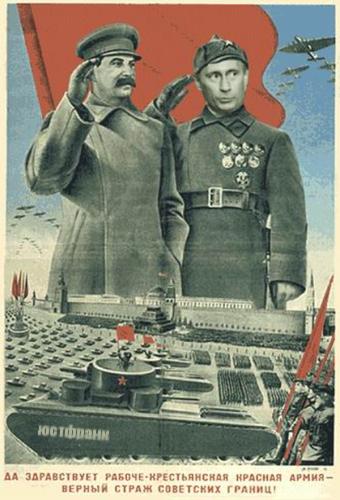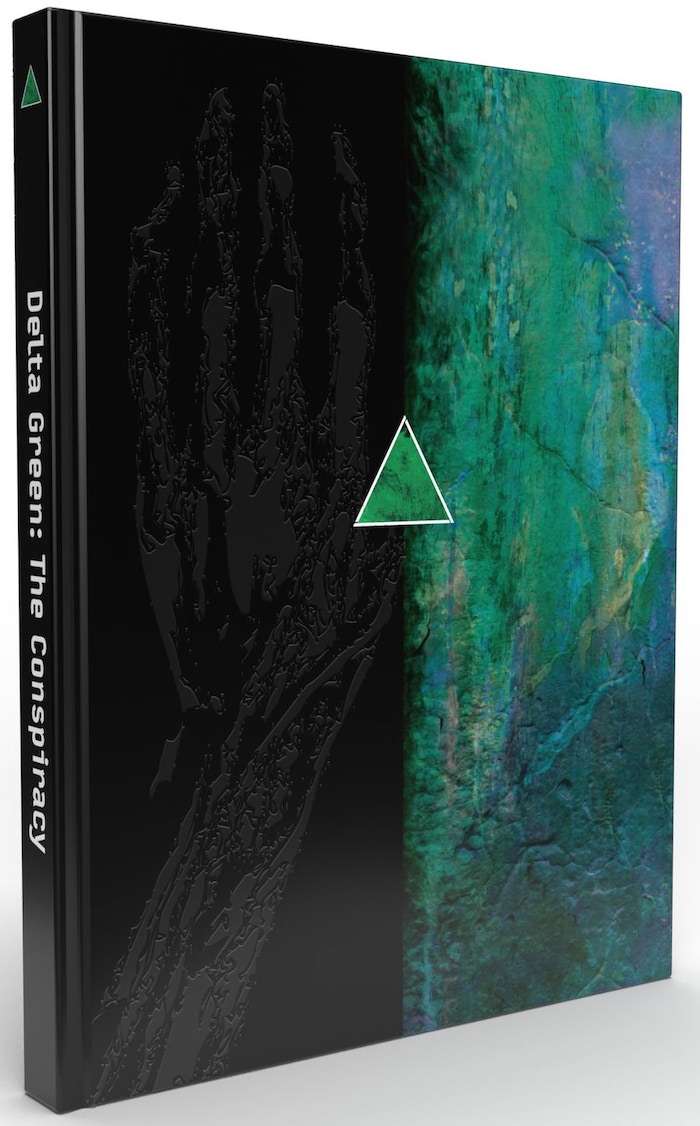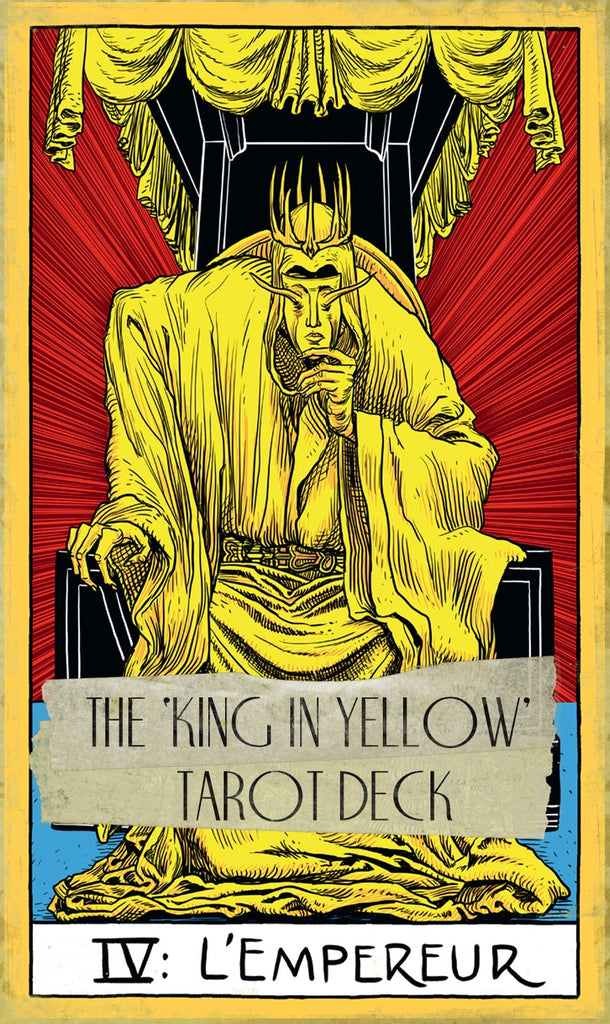By Adam Scott Glancy ©2013
When I wrote about GRU Spetsialni Viedotstvo 8 for Delta Green: Countdown, the world was a different place. In 1999 Russia was still governed by the drunken and inconsistent Boris Yeltsin. Between 1994 and 1996 the Red Army was utterly humiliated by rag-tag Chechen rebels who fought them to a standstill. Russia was still reeling from the 1998 financial crisis that saw inflation at 84%, doubled food prices from the previous year, and caused the Russian government to default on its international loans. Russia’s oligarchs, those insiders who had made billions during the rush to privatize the state industries of the former USSR, dominated the nation’s economy and politics. Everything seemed to have a price tag, from state art treasures to mail-order brides and nuclear weapons. Our great adversary was now an object of pity rather than fear.
That is not the Russia of today.
In the time since 1998, Russia’s GDP has increased eight hundred percent. Russia has emerged as an international energy giant with designs on developing and exploiting their Arctic frontier. Russian has once again prioritized military spending. The Second Chechen War resulted in a Russian victory and the establishment of a brutally effective pro-Moscow Chechen government. The regions of Abkhazia and South Ossetia were wrested away from the Georgian Republic using a combination of ethnic insurgents backed up by Russian “peacekeepers.”
Political dissent is no longer tolerated. Even billionaire oligarchs must either support the regime or face being systematically crushed by the organs of state power. Dissidents, political opponents and enemies of the state have been brazenly assassinated on foreign soil in ways that hearken back to the days of the Cheka and Smersh. The Russian Orthodox Church is being courted by the state as another pillar of the regime’s power. At the top of this corrupt and unaccountable government is one man who runs the show like the Politburo was never dissolved, a former Chekist himself: Vladimir Putin.
Even with the massive fraud associated with the latest elections, Putin remains popular in Russia. It’s said that the only thing American voters will not forgive is a leader who looks bad on television. In Russia, the citizens will forgive anything except weakness. Yeltsin and Putin represent the extremes of that aphorism: Yeltsin having the best intentions but failing, and Putin… well, he certainly seems to be succeeding.
How have these changes affected GRU-SV8?
Misplaced Pity
Part of the mood of GRU-SV8 was built on finding allies among old enemies. Ruined as they were by the Cold War and the collapse of the Soviet empire, you can still respect the men and women of GRU-SV8 as they battle the Mythos despite the fact that there’s no heat in their apartments and they haven’t been paid for two months. American Delta Green agents who cut their teeth during the Cold War might find common cause with their country’s oldest enemy against an even older one. GRU-SV8 was meant to evoke both respect and pity from Investigators who encountered their opposite numbers from behind the Iron Curtain.
But pity from foreigners is not something Russians seek. Their songs and folklore may be filled with misery and hardship, but they do not want your pity. Russians tell you their woes so you will know what hasn’t killed them yet.
If there ever was a chance that former rivals could find common cause together in the late 1990s, what are the chances of that in the 21st century? Based on the way Russia comports itself these days, I’d say the chances for cooperation are pretty slim. Today Russian foreign policy seems built around regaining its lost empire or throwing its weight around like it’s already done so. Though Russia has not regained anything near the power held by the Soviet Union, and perhaps cannot make its will felt outside the boundaries of its former empire, it can be obstructive. Its power comes from the ability to say “nyet,” frustrating American attempts to gain any traction in the U.N. for dealing with things like Iran’s nuclear weapons program or Syria’s bloody protracted civil war. It’s not much, but they revel in it.
Islamic terrorism seems to be the one area where there’s a fair amount of cooperation between Russia and the United States. Both nations are primary targets for religiously-fueled Islamic terrorists. But even when the Russians cooperate on Islamic terrorism, it’s only out of pragmatism. After all, the Russian security services weren’t interested in the Boston Marathon bombers just because they were worried about an attack on America. Even where interests overlap, the Russians always look to their interests first. And getting their assistance, even in matters where they might benefit, always seems to come at a price.
And as Russia has changed, so has the GRU itself. Once a monolithic survivor of the breakup of both the Soviet Union and the KGB, the GRU has been forced to change in recent years. Between 2008 and 2010, Russia began a series of military reforms. One of the most important was removal of the Russian Spetsnaz, or Special Forces, from the GRU’s direct control. Spetsnaz units are now assigned to the chain of command of the Army theater commanders, so that the generals can deploy them without having to go through the GRU’s chain of command. This makes a great deal of operational sense, but it signifies a loss of bureaucratic, operational and budgetary turf.
In the midst of these reforms the leadership of the GRU changed for the first time since the SV-8 material was published in Delta Green: Countdown. From 1997 until 2009 General Valentin Vladimirovich Korabelnikov, a career GRU officer, ran the GRU. Korabelnikov managed to deliver a number of successes to the Putin regime, including the 2nd Chechen War, the Georgian War and the assassinations of many Chechen rebel leaders. After leading the GRU for 12 years, he was forced out in 2009 due to his resistance to the reforms pushed by then Defense Minister Anatoliy Serdyukov. Those historical changes to the real-life GRU make a good backdrop for changes to the fictional GRU SV-8.
Power and Money
In my very first Directive from A-Cell (available at Delta-Green.com), I suggested that when creating a new investigative group for your Delta Green campaign you needed to define its scope, mission, history and theme. Scope defines the agency’s budget, manpower, jurisdiction, official sanction and chain of command. Mission defines how the agency will come into contact with the DG universe, how it will relate to the world of the Cthulhu Mythos. History defines how it came into being and how its scope and mission changed since it was founded. Theme defines what concepts you hope to represent through this fictional group. Of all of these, defining the theme is most important because once the theme is understood the other factors will be easier to define. The same tools should be applied to updating an old adversary or ally.
Thematically, any update of GRU-SV8 should mirror the themes evident in Russia’s ascendant power and political corruption. Today’s Russia runs on the personal relationships of the powerful. Everyone wants to be part of that power elite and plenty are willing to do anything to advance their station. That may have a lot to do with how the Kremlin has actually gotten wind of the existence of GRU-SV8. Back in 1999, GRU-SV8 was so bureaucratically invisible it was only funded at 1976 levels. They operated as the Foreign Space Object Evaluation Unit, the Soviet’s version of MJ-12—only with no budget, facilities, personnel or very much alien technology to examine. No one outside GRU-SV8 had any idea about the cache of dangerous and potent Mythos tomes locked away in their vaults. The 1999 leadership of GRU-SV8 might have been comfortable with that situation, but they, just like real-life General Korabelnikov, won’t be around forever. Rather than the Kremlin sniffing out GRU-SV8, it’s more likely that someone inside the organization made the Kremlin’s leadership aware of the potential locked away inside Special Department 8’s vaults.
But why? Why would someone deliberately bring the existence of the Cthulhu Mythos to the attention of the Kremlin? What advantage is there in it? Well, if they can show the efficacy of hyper-geometrical technology and medieval metaphysics, demonstrating tactical and strategic advantages that can be gained through their study and application, then the Kremlin is going get a basket the size of Siberia, fill it with hard currency and pour it all over GRU SV-8. That kind of money is going to be a motive with a universal adapter. Once upon a time we were worried about unemployed Soviet-era experts in nuclear, chemical and biological weapons getting work with any dangerous and irresponsible tin-pot dictatorship who can pay them a living wage. Now, with Russia’s economy booming, maybe the dangerous regime that’s going to hire GRU SV-8’s experts will be the one in the Kremlin.
The New Regime
The next question is who in GRU SV-8 would be so reckless and arrogant as to think that they could weaponize hyper-geometry into an instrument of state power? Most of the old guard would either be dead, transferred, or forced out by 2009-2010. General Alexander Zimyanin, the leader of GRU SV-8 in 1999, would have been 79 by the time of the historic shakeup of the GRU. SV-8’s bureaucratic invisibility may have shielded him from mandatory retirement until the Kremlin took notice of the agency. Since it seems extremely unlikely that he would support any use of the forbidden knowledge in the vaults, I imagine he’d be forced out in 2009 and probably dead by now. No doubt he left behind a secret memoir in an attempt to warn those who would listen.
Major Ekaterina Pokrovsky, GRU SV-8’s archivist, would be 67 years old in 2013. If she was willing to go along with the change in mission she might still have a job, but given her history it seems doubtful that she’d adapt to the new conditions. Pensioned off but kept under surveillance by the FSB, Pokrovsky would be hell of a catch if Delta Green could arrange her defection.
Neil and Francis Cooper, GRU SV-8’s last assets in North America, would likely be dead or in nursing homes by 2013 at 88 and 87 years old. Retired GRU major-general and international arms merchant Anatoli Semenovich Ogarkov would be an octogenarian by the 2010s. At that age he’d either be dead, incarcerated or retired from any business that the Kremlin, the GRU or SV-8 might find useful. Likely he died from the kind of excesses that ill-gotten fortunes provide. Or, at least, that would be the official story.
Far spryer is SV-8 stringer and freelance assassin Yuri Nikoleavich Krylov. Following his mission to track down Reinhard Galt and the remnants of the Karotechia, his criminal and military background would recommend him for a place in Ogarkov’s armaments empire. But just because the Karotechia is old history in 2013 doesn’t mean that Krylov will live see his 50th birthday. Life expectancy for an ex-Spetznas assassin doing piecework for the Russian Mafia is pretty short. Furthermore, without orders (and a hefty paycheck), he doesn’t have the initiative or temperament to pursue anything related to the Mythos. He’d be happy to retire to some condo in Dubai or Monaco.
Colonel Viktor Adamovich Sterlikov would only be 52 in 2013, and may even have found his way up to the rank of general. He would, however, no longer be in the GRU following the 2009 transfer of the GRU’s Spetznas assets to the control of the army. Isolated by new duties, with a new chain of command, and no access to SV-8’s new agenda, the only hints Sterlikov might get about what’s going would be when old SV-8 comrades want access to Sterlikov’s registry of “retired” Spetznas operators. I doubt he’d accept that tolerating the obscenities against which he fought for decades is simply the price of Russia’s return to greatness, but what are his options?
When last we left Colonel Gennadi Grigorevich Silkin, he was head of SV-8’s only overt department, the Foreign Space Object Evaluation Unit. He was frustrated and bitter, toiling away in obscurity, and believed his superiors were deliberately suppressing his work. He’s just the sort of man who might bring the Foreign Space Object Evaluation Unit to the attention of the Kremlin in an attempt to gain the recognition he believed he deserved. Of course, it would be brutally ironic if having done so he was once again ignored as someone else stole the spotlight.
And who better to steal Col. Silkin’s thunder than Captain Vladamir Arbatov, Major Pokrovsky’s assistant archivist? The guy mentioned only once in the book, who didn’t even get any stats, should clearly be the reckless, arrogant usurper of SV-8’s mission. An overworked and under-appreciated minion emerging at the top of heap because he’s willing to dare what his superiors will not—that idea does have appeal. That personal recklessness mirrors the recklessness of the Russian state these days. As an undefined quantity, Captain Arbatov can be shaped into exactly what’s needed to change GRU SV-8 into something like what Stalin’s Smersh was on its way to becoming decades ago: another Karotechia.
Friends Like These
Undoubtedly promoted well beyond the rank of captain, Vladamir Arbatov promises his masters in the Kremlin miracles that will tilt the balance of global power back to Russia. But the reality is that he doesn’t know what he’s doing. Trying to weaponize the contents of SV-8’s vault of tomes and artifacts is about as safe as groping blindly in a closet full of nitroglycerine. Much like M-EPIC, and certain modern elements of what used to be Majestic-12, GRU SV-8 may end up serving as an example for Delta Green. It can demonstrate that Mythos magic is a power that uses you even more than you use it. Very few seekers of forbidden knowledge set out to become slaves of the Outer Gods; not even the mad sorcerers of the Karotechia wanted that. All they wanted was to win the war and maybe prove the superiority of the Aryan race. Everyone knows where they ended up. That lesson may be lost on Arbatov and his new cronies.
At first, GRU SV-8 will resurface better equipped and staffed than ever before. Their treasure trove of occult intelligence will be a resource that Delta Green might still want to access. After all, if Delta Green wants to get at those Nestorian Cthugha cultists in Afghanistan, they may have to cut a deal with SV-8 to make it happen. But soon, Delta Green agents will realize that the Russians aren’t using their usual scorched-earth tactics. Sorcerers are captured for interrogation rather than liquidated on the spot. Secret libraries are being boxed up and shipped back to Moscow, rather than burned. Perhaps extra-planar entities have been contained, rather than dismissed. How long before such entities are entreated rather than banished? Delta Green may find itself becoming just another asset to be used and tapped for information and resources in the new regime’s thirsty quest for power.
In this decade, GRU SV-8 will transform from being the former adversaries with whom we could find common cause to the allies we can never trust again.
-Adam Scott Glancy






